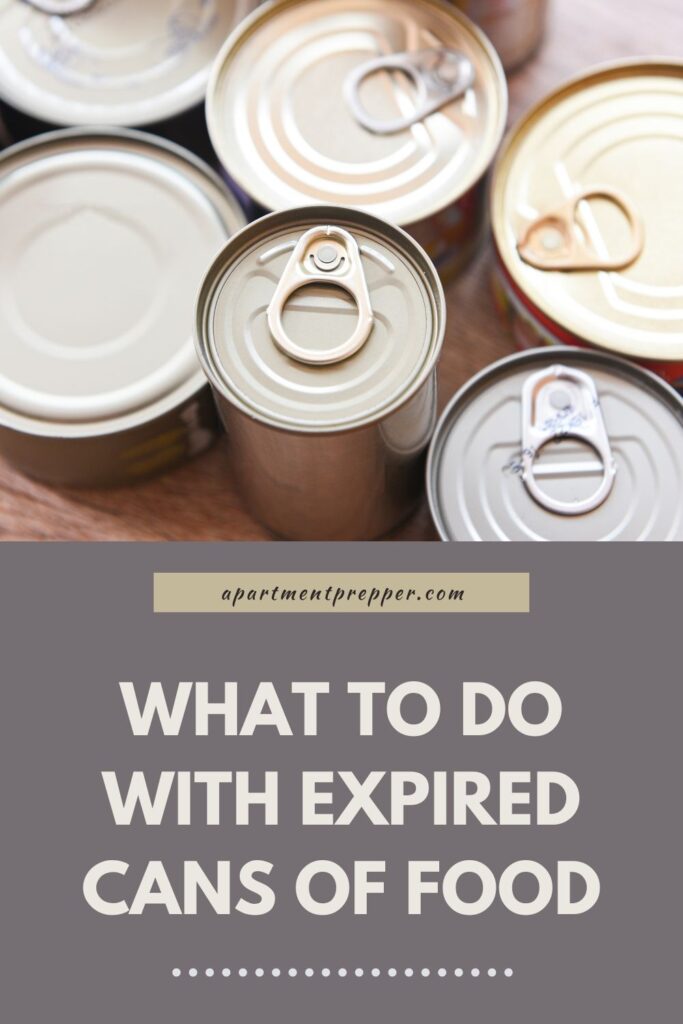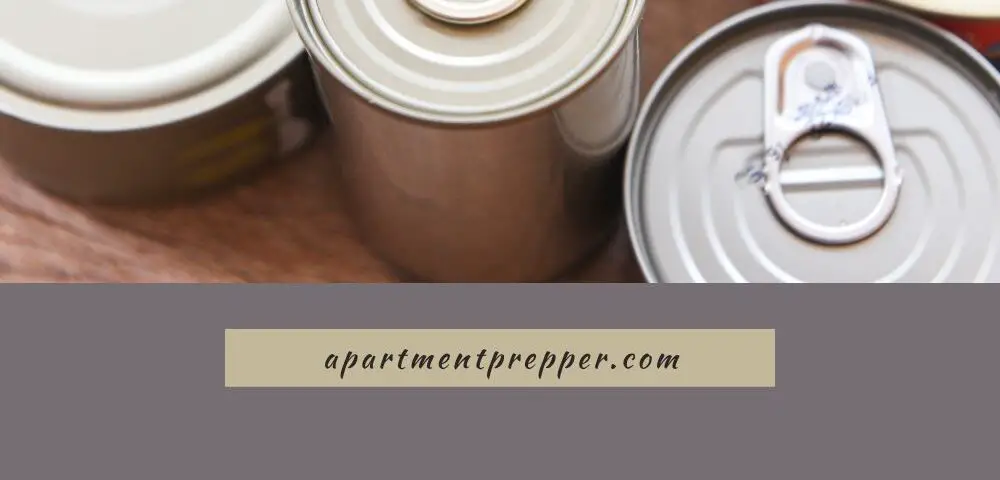Written by Bernie Carr
I checked my food pantry recently and found several canned foods were close to expiring. I placed the earliest expiring cans to the front to remind the family to use those first. The world of expiration dates can be a source of confusion and concern for many. In this article, we’ll explore the truth about canned food safety, the meaning behind expiration dates, and what you can do when faced with canned goods past their recommended dates.
Storage
Store canned foods and other shelf stable products in a cool, dry place. Never put them above or beside the stove, under the sink, in a damp garage or basement, or any place exposed to high or low temperature extremes. Temperatures below 85 °F are best. Check your pantry every few weeks and use canned goods you have had on hand for awhile. Don’t purchase bulging, rusted, leaking, or deeply dented cans.
Source: USDA-Food Safety and Inspection Service
The quality and shelf life of your canned goods are greatly impacted by the manner that you have stored them.
Inspect the Can
Inspect your canned foods for any sign they have been compromised. Any dents or damage to a can’s exterior may indicate seal issues. If air manages to seep into the interior, it can lead to disease-causing bacterial infection. If you come across a can that is bulging or leaking, you should get rid of as it soon as possible. A while back, someone I know had expired cans spontaneous burst in her pantry; she had them from 2002. Her whole food pantry smelled rotten and was a big mess to clean up. Discard any heavily rusted cans that you find.
There’s another way to determine if a can is unsafe. Use your senses. If food from a newly opened can appears rancid or smells bad, do not consume it, regardless of any date stamped on its lid.
Understanding Expiration Dates
To make sense of expiration dates on canned foods, it’s crucial to know where they originate. Contrary to common belief, these dates are not determined by government agencies, except for infant formula where they pertain to nutritional quality rather than safety. Instead, manufacturers set these dates. There are two primary types of dates you may encounter:
- “Sell by” date: This date is provided by manufacturers for the benefit of retailers. It suggests when the product should be removed from shelves, serving as the manufacturer’s recommendation for when the product is at its peak quality. While it’s only a suggestion, supermarkets are obliged to remove products nearing this date to avoid potential legal issues, even if the contents are perfectly safe. This practice often results in stores discarding substantial amounts of perfectly good food and offering deep discounts as the date approaches.
- “Use by” or “best by” date: This date is the manufacturer’s suggestion to consumers regarding how long the product will remain at peak quality. After this date, you might notice a slight decline in taste or texture, but the food is generally still safe to eat. It’s the “use by” date that often leads to domestic disagreements as food lingers in pantries months or even years beyond its supposed peak.
How Manufacturers Determine Expiration Dates
There are no strict rules and regulations governing expiration dates set by government agencies. Instead, manufacturers rely on test kitchens, laboratory scrutiny, and taste tests conducted by panels of volunteers, all funded and administered by the manufacturers themselves. What does this mean for consumers? It means there’s no way to know how rigorous these tests were before a date was stamped on a can. It’s even possible that pure guesswork was involved in determining the date.
These dates can be conservative, aiming to err “on the safe side” of consumption for quality purposes. Alternatively, they may be based on a production formula used years ago.
What to Do With Canned Foods After the Expiration Date
Now that we’ve demystified expiration dates on canned foods, let’s explore your options for dealing with canned goods that have passed their expiration dates:
- Consume them: Canned foods are often safe to eat, especially if only a reasonable amount of time has elapsed since the expiration date. According to the United States Department of Agriculture, high-acid canned goods remain of good quality for up to 18 months, while other canned goods have a shelf life of up to 5 years.
- Feed the animals: If the food still appears safe to eat but the family doesn’t want to eat it, you might consider feeding it to animals (as long as it’s appropriate for the animal).
- Store them correctly: Although canned goods have a long shelf life, they won’t last indefinitely. Store them in a stable environment with temperatures between 50 and 70 degrees Fahrenheit, avoiding extreme heat or freezing. Consider a can storage rotator that allows you to use the older cans first. Dry conditions help prevent deterioration.
- Recycle: Empty and rinse the cans, then recycle the metal. Take care when dealing with damaged cans or jars, and follow proper safety precautions.
- Donate: Some food banks may accept canned goods beyond their expiration dates, but their policies can vary. Do not donate damaged or bulging cans. Check with local charities to see if they have specific guidelines regarding expiration dates.
- Compost: If you’re still hesitant about consuming expired canned food, consider composting it. Even canned goods with preservatives or other chemicals will eventually break down in a compost pile, contributing to nutrient-rich soil. Be sure to dispose of them properly to prevent attracting animals.
- Dispose: When in doubt, throw it out. Sometimes, it might be best to accept that the money spent on these items is a sunk cost, and it’s time to throw them out. Seal them securely in plastic garbage bags before placing them in the landfill.
To read more about food safety, check out the Food Keeper app from foodsafety.gov.
In conclusion, expiration dates on canned foods are not as rigid as they may seem. Trust your senses when evaluating the quality of canned food, and consider these options to reduce food waste, save money, and contribute to a healthier planet. Cans of food, even if they’ve passed their “best by” dates, can still be valuable resources when handled and used sensibly.
If you found this article interesting or helpful, please consider helping us out (without costing you anything)! We are an affiliate of Amazon.com, which means we received a small commission if you click through one of our Amazon links when you shop, at totally no cost to you. This helps keep the lights on at the blog. Thanks!
About the author
Bernie Carr is the founder of Apartment Prepper. She has written several books including the best-selling Prepper’s Pocket Guide, Jake and Miller’s Big Adventure, The Penny-Pinching Prepper and How to Prepare for Most Emergencies on a $50 a Month Budget. Bernie’s latest e-book, FRUGAL DIY has just been released on Amazon. Her work appears in sites such as the Allstate Blog and Clark.com, as well as print magazines such as Backwoods Survival Guide and Prepper Survival Guide. She has been featured in national publications such as Fox Business and Popular Mechanics. Learn more about Bernie here.
FB: https://www.facebook.com/apartmentprepper
Instagram: https://www.instagram.com/apartmentpreppers/
Twitter: https://twitter.com/AptPrepper
YouTube: https://www.youtube.com/channel/UC7vOtdbo-wiBeBxD6puCr1Q
Patreon: https://patreon.com/apartmentprepper
Pinterest: https://www.pinterest.com/aptprepper/
Today’s societal climate not supportive of prepping. With your help, we can keep bringing you content that is often suppressed. Help keep Apartment Prepper alive.
Join me on Patreon for ad-free content.

Or Help out via Paypal



